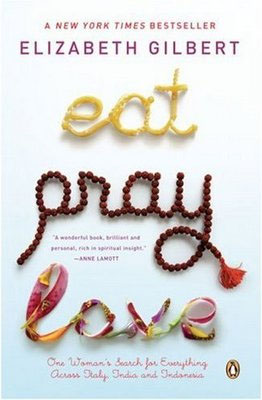February 3rd, 2011 by ChristopherChangMD in Health Tips, Research
No Comments »

 USA Today published a pretty accurate article regarding the rise of certain head and neck cancers with the increased popularity of oral sex and number of sexual partners.
USA Today published a pretty accurate article regarding the rise of certain head and neck cancers with the increased popularity of oral sex and number of sexual partners.
The factor that creates this link is the human papillomavirus (HPV) which is associated with tonsil and tongue cancer. Alcohol and tobacco use is more highly linked with such oral cancers, but HPV does appear to be an independent risk factor.
A 2007 study in the New England Journal of Medicine found that younger people with head and neck cancers who tested positive for oral HPV infection were more likely to have had multiple vaginal and oral sex partners in their lifetime. Having six or more oral sex partners over a lifetime was associated with a 3.4 times higher risk for oropharyngeal cancer — cancers of the base of the tongue, back of the throat, or tonsils. Having 26 or more vaginal-sex partners tripled the risk. The association continued to increase as the number of partners in either category increased.
Of greater concern is that “French” kissing may also potentially be a mode of transmission.
The good news (if you’re a young non-smoker diagnosed with HPV-positive tumors) is that about 85 percent of non-smoking people with HPV-positive tumors survive. That number drops to 45 or 50 percent in people who smoke and are HPV-negative. Read more »
*This blog post was originally published at Fauquier ENT Blog*
October 8th, 2010 by DrWes in Better Health Network, Health Tips, News, Opinion, Research
No Comments »

Have a defibrillator and feel like getting frisky? For the first time that I can recall, there’s a very helpful article published in Circulation addresses the concerns of implantable cardiac defibrillator (ICD) patients and sexual activity. There’s all kinds of helpful tidbits, like this one:
A study of 1,774 patients who had experienced an acute myocardial infarction showed that sexual activity was a likely contributor in fewer than 1 percent of cases. In fact, regular physical exertion, such as that associated with sexual activity, was associated with a decreased risk of cardiac events in patients.
Now that’s helpful!
Recall that defibrillators are designed to detect rapid, potentially life-threatening arrhythmias. Most of the time, sexual activity does not lead to heart rates at a level that ICD’s would consider elevated during intercourse. (This, of course is patient specific). While your doctor can tell you the rate cut-off at which your ICD might possibly fire, watching your heart rate rise with a monitor during those moments might be a bit of a, shall we say, turn-off. Read more »
*This blog post was originally published at Dr. Wes*
August 21st, 2010 by Peggy Polaneczky, M.D. in Better Health Network, Book Reviews, Health Tips, Humor, Opinion, True Stories
No Comments »

 I really didn’t expect to like Eat, Pray, Love. In fact, since its publication in 2006, I’d been avoiding it like the plague. “Typical new-agey, Oprah-y, girly-book,” I thought. Nothing in it to speak to me.
I really didn’t expect to like Eat, Pray, Love. In fact, since its publication in 2006, I’d been avoiding it like the plague. “Typical new-agey, Oprah-y, girly-book,” I thought. Nothing in it to speak to me.
Then I saw the trailer for the movie, and I was hooked –- probably because I, like mostly everyone, love Julia Roberts. I immediately downloaded the book on my iPhone using the Kindle App and began to read.
First, let me say that Elizabeth Gilbert writes exceptionally well, and the book is actually a joy to read. I, of course, loved the Italy eating part. But more surprising to me, I wasn’t turned off by the whole yoga, Guru, find-yourself stuff. This is because Gilbert writes it all with a reporter’s curiosity and a skeptic’s eye, and frames it not as a belief system, but as a tool for self-discovery and peace. (Plus, I’m really good at skimming if I get bored.)
Too bad Gilbert’s curiosity and skepticism does not extend to the healthcare she receives while in Bali. She accepts the curative powers of a warm leaf placed on an oozing, infected cut without even wondering what leaf it might be or how it might have worked. Was it the heat (most likely) or something else (possibly)? I was dying to know.
She Xeroxes pages and pages of traditional medical treatments without sharing a single one with us in any meaningful way. While I’m pretty sure 99 percent of what was in there was bunk, there might be a few gems that would serve medical science. Unless Lizzie made a second copy, we’ll never know, will we?
But it was the UTI that really got to me. Read more »
*This blog post was originally published at tbtam*
 USA Today published a pretty accurate article regarding the rise of certain head and neck cancers with the increased popularity of oral sex and number of sexual partners.
USA Today published a pretty accurate article regarding the rise of certain head and neck cancers with the increased popularity of oral sex and number of sexual partners.




 I really didn’t expect to like
I really didn’t expect to like 







